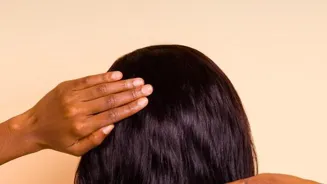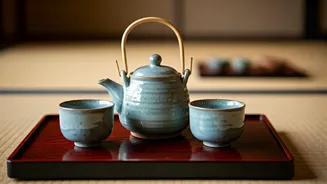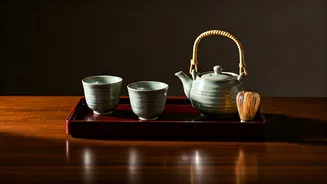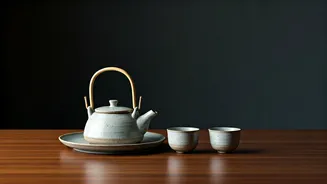Discover the secrets to a natural hair care routine from shampoo to styling for healthier, stronger hair
In today's world, many people are looking for ways to take better care of themselves using natural
products. When it comes to hair care, the market is flooded with options, but many of them contain harsh chemicals that can damage your hair over time.
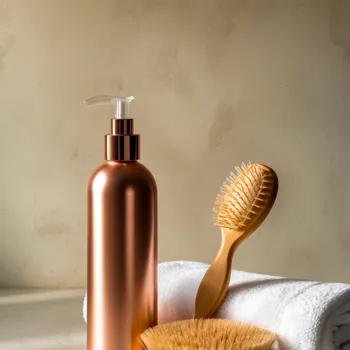
Switching to a natural hair care routine can be a game-changer, promoting healthier, stronger, and more vibrant hair. This article will guide you through creating a simple yet effective natural hair care routine, from choosing the right shampoo to styling your hair naturally.
We will focus on ingredients and methods that are easily available and suitable for various hair types.
Choose sulfate-free shampoo with natural ingredients for healthy hair care routine
The first crucial step in any hair care routine is choosing the right shampoo. Many commercial shampoos contain sulfates, parabens, and silicones, which can strip your hair of its natural oils, leading to dryness and breakage.
Instead, opt for a sulfate-free shampoo that contains natural cleansing agents. Look for ingredients like reetha (soapnut), shikakai, and aloe vera, which are gentle cleansers that effectively remove dirt and grime without causing damage.
Reetha creates a natural lather, shikakai helps to detangle the hair, and aloe vera soothes the scalp. When washing your hair, focus on cleansing the scalp rather than the entire length of your hair. Massage the shampoo into your scalp gently to stimulate blood circulation and remove buildup.
Rinse thoroughly with lukewarm water, as hot water can be damaging. Remember, washing your hair too frequently can also lead to dryness, so aim to shampoo 2-3 times a week, depending on your hair type and activity level.
After shampooing, always follow up with a natural conditioner to replenish moisture and make your hair more manageable.
Conditioning is key for dry, damaged hair; use natural ingredients for best results
Conditioning is just as important as shampooing, especially for those with dry, damaged, or frizzy hair. Natural conditioners help to detangle, moisturize, and protect your hair from environmental damage.
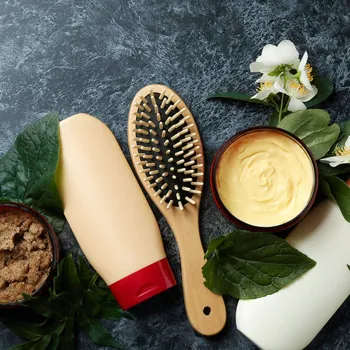
Look for conditioners that contain ingredients like coconut oil, shea butter, argan oil, and honey. Coconut oil is excellent for penetrating the hair shaft and strengthening it from within, while shea butter provides intense moisture and adds shine.
Argan oil is rich in antioxidants and fatty acids, which help to repair damaged hair and protect it from heat styling. Honey is a natural humectant, meaning it attracts moisture to the hair, keeping it hydrated and soft.
When applying conditioner, focus on the lengths and ends of your hair, avoiding the scalp to prevent greasiness. Leave the conditioner on for a few minutes to allow it to penetrate the hair shaft, then rinse thoroughly with cool water to seal the cuticle and enhance shine.
For an extra boost of hydration, you can also use a deep conditioner once a week.
Deep conditioning with natural ingredients for healthy, shiny hair
Deep conditioning is a fantastic way to provide your hair with intense hydration and repair. Natural deep conditioners often contain a combination of nourishing oils, butters, and other beneficial ingredients.
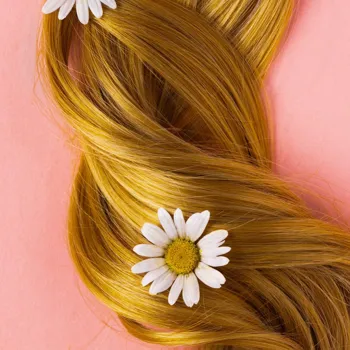
You can easily make your own deep conditioner at home using simple ingredients like avocado, banana, yogurt, and olive oil. Avocado is rich in vitamins and healthy fats, which help to nourish and strengthen the hair. Banana is a natural source of silica, which promotes hair growth and adds shine.
Yogurt contains probiotics, which can help to balance the scalp's microbiome and improve hair health. Olive oil is a powerful moisturizer that helps to smooth and soften the hair.
To make a deep conditioner, simply blend together your chosen ingredients and apply the mixture to your hair, focusing on the lengths and ends. Cover your hair with a shower cap and leave it on for 30 minutes to an hour.
You can also wrap a warm towel around your head to help the ingredients penetrate deeper. Rinse thoroughly with cool water and style as usual. Deep conditioning once a week can significantly improve the health and appearance of your hair, making it softer, smoother, and more manageable.
Oiling hair in India offers many benefits, use coconut, almond, olive, castor oil for hair health
Oiling your hair is an age-old tradition in India, and it's a practice that offers numerous benefits for hair health. Natural oils help to nourish the scalp, strengthen the hair follicles, and protect the hair from damage.
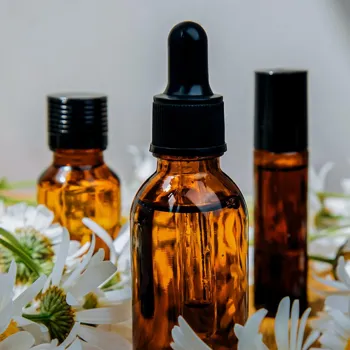
Some of the best oils for hair include coconut oil, almond oil, olive oil, and castor oil. Coconut oil is a versatile oil that can be used for both pre-shampoo and post-shampoo treatments. Almond oil is rich in vitamin E, which promotes hair growth and adds shine.
Olive oil is a great moisturizer for dry and damaged hair. Castor oil is known for its ability to stimulate hair growth and strengthen the hair follicles. To oil your hair, warm a small amount of oil and massage it into your scalp in circular motions.
This helps to stimulate blood circulation and promote hair growth. You can also apply the oil to the lengths and ends of your hair to moisturize and protect it. Leave the oil on for at least 30 minutes, or even overnight for a more intensive treatment.
Wash your hair as usual with a gentle shampoo and conditioner. Regular oiling can improve the overall health and appearance of your hair, making it stronger, shinier, and more resistant to damage.
Protect and style hair naturally to avoid damage
After washing and conditioning your hair, it's important to protect it from damage while it's drying and styling. Avoid using harsh chemicals and heat styling tools as much as possible. Instead, opt for natural styling products and techniques.
For example, you can use aloe vera gel as a natural hair gel to tame frizz and add definition. Flaxseed gel is another great option for creating hold and shine. To make flaxseed gel, simply boil flaxseeds in water until the mixture thickens. Strain the gel and store it in the refrigerator.
You can also use natural oils like argan oil or jojoba oil to smooth flyaways and add shine. When drying your hair, avoid using a hot blow dryer, as this can damage the hair. Instead, let your hair air dry or use a low-heat diffuser.
If you must use heat styling tools, always use a heat protectant spray. When styling your hair, avoid tight hairstyles that can pull on the hair follicles and lead to breakage. Instead, opt for loose braids, buns, or ponytails.
Embrace your natural hair texture and experiment with different styles that enhance your natural beauty.
Maintain healthy diet, lifestyle for vibrant hair; eat well, hydrate, sleep, manage stress
Maintaining a healthy diet and lifestyle is also essential for hair health. What you eat and how you live can have a significant impact on the health and appearance of your hair. Make sure to eat a balanced diet that is rich in vitamins, minerals, and antioxidants.
Foods that are particularly good for hair health include leafy green vegetables, fruits, nuts, seeds, and whole grains. Stay hydrated by drinking plenty of water throughout the day. Get enough sleep, as sleep deprivation can lead to stress and hair loss.
Manage your stress levels through relaxation techniques like yoga, meditation, or spending time in nature. Avoid smoking and excessive alcohol consumption, as these can damage your hair. By taking care of your overall health, you can promote healthier, stronger, and more vibrant hair.
Remember that consistency is key when it comes to natural hair care. Stick to your routine and be patient, as it may take time to see results. With dedication and the right ingredients, you can achieve beautiful, healthy hair naturally.
